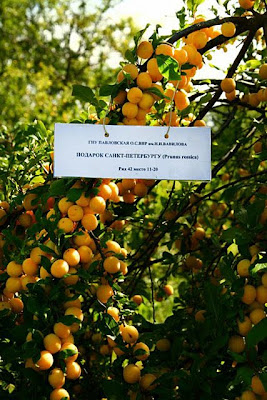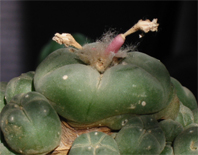As mentioned in the previous post the Pavlovsk Experimental Station (part of the N.I. Vavilov Institute of Plant Industry), one of the biggest and most important seed banks in the world, is at risk of being replaced by a private housing development. Fortunately international attention has started to focus on the looming disaster. Al Jazeera’s Neave Barker reports from Pavlovsk in the St Petersburg Region:
“[The Pavlovsk seed bank] is one of the biggest and oldest of its kind anywhere in the world. It has one of the largest collections of fruit – a thousand different types of strawberry from 40 different nations, 900 different types of blackcurrant and 300 different strains of cherry; and most of them are unique to Pavlovsk […] Scientists warn that if important genotypes are destroyed the world’s food security will be weakened. A case in point: Russian food supplies for example are already under serious strain following the worst drought in living memory.”
You can watch Neave Barker’s video reportage below.
The National Public Radio also reports on the importance of the Pavlovsk collection:
The collection is rare, scientists say, one in a handful of places around the world where scientists carefully study fruit that could sustain through future generations even if temperatures warm and the world’s food supply is threatened […] the research station has collected fruit and berry varieties from around the world, stayed in touch with scientists abroad and cataloged everything.
"Like [what is] winter-resistant, resistant to different kind of fungi, diseases or bacteria," Burmistrov says. "What is the quality? What is the taste? And so, so on."

Russian plum (Prunus rossica) growing at Pavlovsk (photo by Global Crop Diversity Trust via Flickr)
The Farming Futures blog also has a say on this topic:
Both seed banks and wild populations are crucial resources to maintain genetic variety and traits that could be crucial to maintaining robust and productive harvests. Examples from history support this: grassy stunt virus decimated the Indian rice crop in the 1970s, and genetic resistance was found in just one of 6200 species. Again in the 1970s, when corn blight destroyed 15% of the US maize crop, resistance was found in the last remaining wildtype in an endangered Mexican habitat.
The loss of biodiversity therefore represents not only a significant business risk to the agricultural industry but a genuine threat to future food security – how will we create new varieties for our changing climate if we have only a handful of types to work with? Whilst stopping the loss of biodiversity in the wild is the ideal option, seed banks represent an important resource or ‘back-up plan’. Pavlovsk contains specimens of over 5,000 varieties of seeds and berries from a multitude of countries, and more than 90% of them cannot be found in any other research collection.
On an even more sinister note RIA Novosti recently reported that scientists were denied access to the Pavlovsk Experimental Station by the housing construction development fund.
A few days ago the N.I. Vavilov Institute of Plant Industry wrote on their website that the Pavlovsk Experimental Station had had an unscheduled inspection on 31st of August 2010 – the station was visited by representatives of the government as well as representatives of the development fund. After visiting two plots the commission was convinced that, indeed, the disputed plots harbor plants that must be considered valuable genetic resources and the auctioning off of the land was postponed (this is definitely a step in the right direction, but saving Pavlovsk is far from a done deal – so it’s still too early to celebrate).
There is a certain irony in the fact that this is happening in 2010, the year the United Nations declared to be the International Year of Biodiversity!
Help save the Pavlovsk Experiment Station: Sign the Global Crop Diversity Trust’s petition to tell President Medvedev to stop the closure of Pavlovsk.
Or tweet Russian President Dmitry Medvedev on behalf of Pavlovsk Station:
@KremlinRussia_E Mr. President, protect the future of food - save #Pavlovsk Station! http://bit.ly/d2H96s



















No comments:
Post a Comment